
Farnush Ghadery
Senior Lecturer in Law, London South Bank University
Dr. Farnush Ghadery is a Senior Lecturer in Law whose research is situated at the intersection of feminist theory and international law, with a particular interest in women's rights movements in the Global South. Farnush is a frequent guest lecturer at different institutions, including King's College London, McGill University, and Riara University Nairobi. She is a co-founder of the Feminist TWAIL (Third World Approaches to International Law) Collective and a member of the Editorial Board of the Feminist Legal Studies journal.
Less ![]()
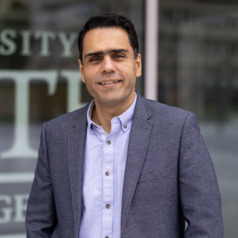
Farooq Mughal
Senior Lecturer (Associate Professor), Management Strategy & Organisation, University of Bath
Dr. Farooq Mughal is an Associate Professor (Senior Lecturer) at the University of Bath School of Management, researching innovative pathways to managerial and leadership development.
Less ![]()
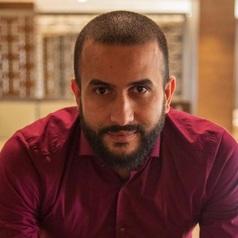
Farouq Tahar
PhD Researcher in Architecture, University of Sheffield
I am a PhD candidate at Sheffield school of architecture interested in exploring the social role of architecture, and the impact of the built environment on communities’ performance. I hold a Master of Arts in Architectural Design from Sheffield School of Architecture. I worked in practice for several years in Algeria and gained decent experience in academia when working in Saudi Arabia as a researcher/consultant for the Institute of Pilgrimage research at Um Al-Qura University. After years of studies and work experience, I launched my PhD research to investigate the Muslims participation in architecture and urban projects in Britain, and the impact of community cohesion and integration policies on their participation.
Less ![]()
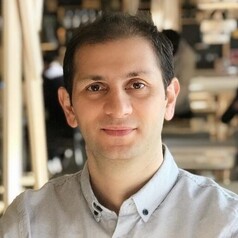
Farshad Arvin
Associate professor in robotics, Durham University
Farshad Arvin is an Associate Professor in the Department of Computer Science at Durham University.
Farshad's research interests include Swarm Robotics, biohybrid robotics and Autonomous Multi-agent Systems.
Less ![]()
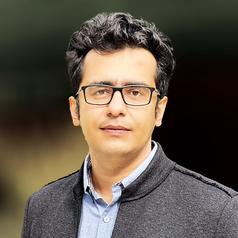
Farzad Hashemi
Assistant Professor in Architecture, The University of Texas at San Antonio
Farzad serves as an Assistant Professor of Architecture at the University of Texas at San Antonio (UTSA). He is also the founding director of the Climate-Sensitive Design Lab (CSDL) at the UTSA School of Architecture + Planning. Holding a Ph.D. in Architecture from Penn State, with a focus on Sustainability, Farzad is deeply passionate about climate-responsive design, energy-efficient buildings, and sustainable urban development. His investigations primarily explore the intricate connections between urban microclimates and the energy performance of buildings, with a particular focus on vulnerable communities.
Less ![]()
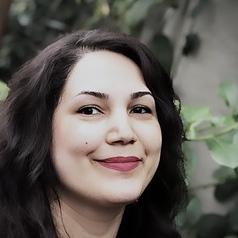
Farzaneh Barak
Research scientist, School of Human Nutrition, McGill University
Farzaneh is a recent Ph.D. from the School of Human Nutrition at McGill University, affiliated with McGill's Margaret A. Gilliam Institute for Global Food Security. Farzaneh has over a decade of national and international academic research and professional experience in public health nutrition and food security in Uganda, Malawi, Canada, and Iran. Her doctoral research investigated the intersections between food security, women's empowerment, equity, and policy using a gender lens in Uganda. She has also collaborated with Food Secure Canada as a research consultant. Her research has been published and presented at various national and international conferences. Farzaneh's research interests include equitable food systems, community-based approaches, intersectionality and equity-centred analysis, gender, and science communication.
Less ![]()
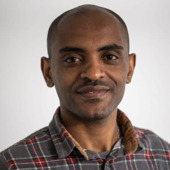
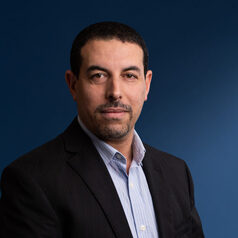
Fateh Chebana
Professor in Data Science applied to the Environment and Environmental Health, Institut national de la recherche scientifique (INRS)
Les intérêts de recherche du professeur Chebana portent principalement sur la science des données, en mettant l’accent sur les applications en environnement et en santé environnementale. Son expertise se situe dans une grande variété de recherches interdisciplinaires avec des approches de science des données (y compris, mais sans s’y limiter, l’hydrologie, les sciences de l’eau, la climatologie, l’épidémiologie climatique, les effets du changement climatique). Il s’intéresse au développement de nouvelles méthodologies de science des données, ainsi qu’à l’adaptation ou à l’application d’approches récentes/avancées.
Less ![]()
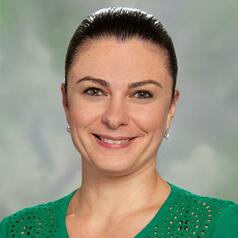
Faten Ghosn
Professor, Department of Government, University of Essex and Non-Resident Fellow at Center for Middle Eastern Studies at the University of Arizona, University of Essex
Professor Ghosn holds a BA and MA from the American University of Beirut and a Ph.D. from Pennsylvania State University. She is currently the Head of Department of Government at the University of Essex and non-residential Fellow at the Center for Middle Eastern Studies at the University of Arizona. Her research and teaching centre on the dynamics between adversaries, whether conflictual or cooperative, and the outcomes of these interactions. Over the years, she has delivered numerous lectures on conflict and negotiations in the Middle East to religious and political groups in the US and abroad and has also spoken at institutions like the US Army War College and Fort Bragg. Additionally, she was invited by the International Displacement Monitoring Center, United Nations Leadership Institute, and UNHCR to present her work on forced migration and obstacles to peace in Lebanon. Ghosn has published widely in both academic and policy forums and has received multiple research awards, including from the Minerva Initiative, funded by the Department of Defense and the U.S. Army Research Office, as well as the National Science Foundation.
Less ![]()
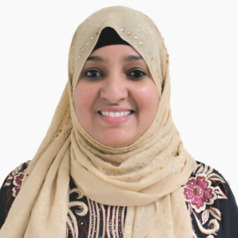
Fathiya Khamis
Senior Scientist, International Centre of Insect Physiology and Ecology
Dr Fathiya Mbarak Khamis is a senior scientist in ICIPE’s Plant Health Theme.
She holds BSc and MSc degrees in biochemistry from Jomo Kenyatta University of Agriculture and Technology and a PhD in molecular biology from Kenyatta University. She has worked in Kenyatta University transitioning from a graduate assistant to a tutorial fellow and later a lecturer in the Department of Biochemistry and Biotechnology.
Fathiya is currently working on native and invasive insect pests of fruits and vegetables that are of economic importance for food security in Africa and beyond. She applies molecular techniques to assess the safety of insects as a sustainable source of nutritious food for humans and feed for livestock.
She has taken a key role in utilising her expertise to develop and promote effective and ecologically sustainable integrated pest management systems, and to assess microbial safety of edible insects and their rearing substrates, which is critical for mainstreaming the insects’ alternative sources of protein for food and feed in the continent.
She serves as a member of ICIPE’s institutional biosafety committee and Institutional Board of Postgraduate Studies, a member of the Biochemical Society of Kenya and on the editorial board of Frontiers in Insect Physiology and is a reviewer for several high impact peer reviewed journals.
Fathiya has authored and co-authored more than 100 articles in international peer-reviewed journals and book chapters with a Google Scholar citation of 1984, an h-index of 23 and i10 index 50. She is active in building research capacity in Africa through mentoring and supervising students, young scientists, and technical staff.
In recognition of her contribution to research and development in Africa, Dr Khamis was awarded the 2019 TWAS-Abdool Karim Prize in biological sciences.
Less ![]()
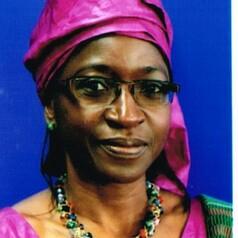
Fatima Fall Niang
Directrice du Centre de recherche et documentation du Senegal (CRDS), Université Gaston Berger
Ms. Fatima Fall NIANG has been a specialist in preventive conservation and manager of model cultural institutions at the Centre de Recherche et de Documentation du Sénégal, an institute of the Université Gaston Berger de Saint-Louis. She has worked there for 29 years (13 years at the museum and 16 years as the Center's director).
From 2000-2001, she was a consultant for WAMP in the program entitled: "Identification, Classification, Preservation, Interpretation of Photographic Collections in Museums and Archives in West Africa" funded by the Getty Grant Program, USA.
She was a member of the team that put together the file for the inscription of the Island of Saint-Louis on the World Heritage List, the inventory that followed and all the issues of conservation, safeguarding and promotion of cultural heritage and tourism in the northern zone. Since 2009, Mrs. NIANG is a member of the steering committee of the Tourism Development Program.
Since 1999, she has been involved in university courses at EPA. Since 2011, she teaches in the Professional Master in Tourism in LSH; from 2008 to 2012, she coordinated the model for the opening of the MDP section of the UFR CRAC at the UGB; From 2011-2012, she was a member of the design team of the model: "management and conservation of heritage" developed by the UEMOA out of 22 courses planned in the area. In 2017, she was co-opted as a member of the International Scientific Committee of the Amadou Mahtar MBOW University, in Diamniadio.
She is a UNESCO expert-referent for intangible heritage where she coordinated the registration file of the element "Ceebu jën" on the World Heritage List of Humanity, December 15, 2021. She is co-author of a book entitled: "Ceebu Jën, a Senegalese heritage" published on December 2, 2021.
Mrs. NIANG is a member of ICOMOS and ICOM of which she has been the head of the national committee since 2017.
She was decorated Knight in the Order of Academic Palms by France in March 2002 and in the National Order of Merit of Senegal in February 2020.
Less ![]()
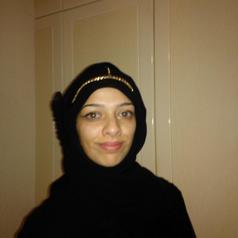
Fatima Bhoola
Fatima Bhoola lectures Economics at the University of the Witwatersrand (Wits) where she obtained her MCom (Economics) degree in 2010. Her areas of interest include monetary policy, exchange rate volatility and economic growth. Published work includes studies on the determinants of output growth volatility in South Africa. She has also contributed book chapters pertaining to South Africa’s Financial and Labour markets. She is a passionate educator with a keen interest in learning and teaching.
Less ![]()
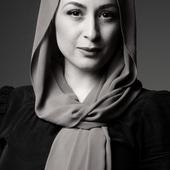
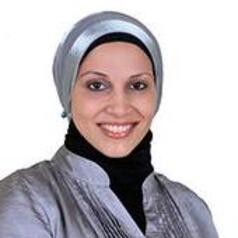
Fatin Samara
Professor of Environmental Science, American University of Sharjah
Dr. Samara completed her post-doctoral work at the Environmental Protection Agency Air Pollution Prevention and Control Division (APPCD); National Risk Management Research Laboratory in Research Triangle Park, North Carolina, USA. She is the Co-Chair of the UAE Climate Change Research Network, established by the Ministry of Climate Change and Environment, which aims to facilitate dissemination of knowledge and advance development of research collaborations. Her research work aims to solve local environmental problems related to environmental quality, toxicity assessments, and waste to energy.
Less ![]()
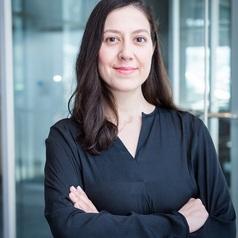
Fatma Ozdogan
PhD Student & Researcher, post-disaster reconstruction, Université de Montréal
Fatma Özdoğan is an architect, GIS specialist, and project manager with extensive international project experience in Qatar, Azerbaijan, and Türkiye. She has also researched in diverse locations such as Türkiye, Colombia, Lebanon, and the United Kingdom. She completed her master's degree in Türkiye, where she focused on the importance of architectural education in disaster risk reduction. Recognizing her expertise in disaster management, Fatma was awarded a prestigious scholarship at Oxford Brookes University in the United Kingdom, where she pursued a master's program in development and emergency practice. While at Oxford Brookes, she deepened her understanding of the interplay between sustainable urban development and disasters. Her studies specifically explored the impacts of internal displacement and migratory movements resulting from conflicts in Türkiye's cities. Fatma is undertaking her doctoral studies at the faculty of architecture on inderdisciplinary planning at the Université de Montréal. Her research centres around disaster management, particularly post-disaster reconstruction. Through her work, she aims to understand the needs of communities as an architect and propose sustainable solutions that bridge the gaps between these needs and the services provided. By examining the relationship between a country's disaster response and its overall development, Fatma seeks to contribute to effective strategies and solutions in the field. In addition to her ongoing research in the post-disaster reconstruction processes in Türkiye, she is a part-time lecturer at Bahçeşehir University in İstanbul where she leads a course on Architecture, Disasters and Development.
Less ![]()
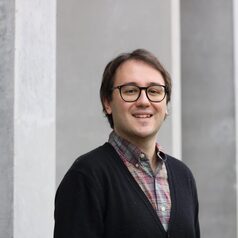
Fausto Corvino
Marie Skłodowska-Curie Postdoctoral Fellow in Philosophy, Université catholique de Louvain (UCLouvain)
I am a political and moral philosopher working at the intersection of ethics and public policy. My main research interests lie in climate and intergenerational justice. I am currently a Marie Skłodowska-Curie Fellow in Philosophy at the Hoover Chair in Economic and Social Ethics at UCLouvain (Belgium), where I am conducting an individual research project entitled “Should we prohibit luxury emissions of greenhouse gases, on top of price constraints?” (PROHIBLUX). Previously, I was a Postdoctoral Researcher in Practical Philosophy at the University of Gothenburg (Sweden). There I was a member of the Financial Ethics Research Group and conducted an individual research project on the ethics of market-based approaches to climate policy. Before that, I worked as a Postdoctoral Researcher in Moral Philosophy at the Sant'Anna School of Advanced Studies (Pisa, Italy) and as a Postdoctoral Researcher in Theoretical Philosophy at the University of Turin (Italy). During this time I worked mainly on global justice, economic ethics, both theoretical and practical issues related to intergenerational justice, and the ethics of the climate transition.
The very broad question guiding my research is how the burdens and benefits of an ambitious climate transition should be fairly distributed, both domestically and globally, and across generations.
Less ![]()
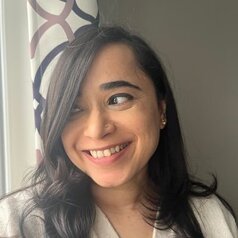
Fauzia Husain
Assistant Professor, Department of Sociology, Queen's University, Ontario
I am a cultural sociologist interested in understanding how people, especially contemporary Muslim women, navigate cultural contradiction, how they forge belonging and exercise agency amidst the socio-economic changes and upheavels precipitated by global processes, such as the transformation of love (Husain 2020), the spread of Western standards of safety in postcolonial contexts (Husain 2021) and the complexities of immigration and integration (current project).
Less ![]()
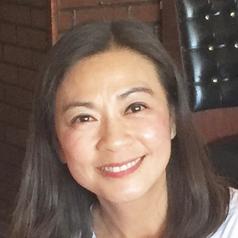
Fawn Ngo
Associate Professor of Criminology, University of South Florida
My research interests include testing criminological theory, stalking, cybercrime, predictive analytic applications in criminology and criminal justice, and evaluative research. I have authored over 30 journal articles, book chapters, and technical reports examining the efficacy of self-control theory, routine activity theory, differential social control theory, general strain theory, and gender/general strain theory in accounting for crime and victimization (both online and offline) as well as gender differences in stalking acknowledgment, victim emotional and behavioral copings to the crime of stalking, and the effectiveness of formal and informal responses to the crime of stalking. My latest research focuses on the comparative performance of conventional statistical methods and machine learning and data mining techniques in predicting inmate misconduct.
Less ![]()
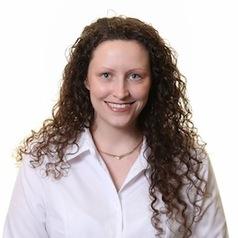
Fay Short
Professor, Human and Behavioural Sciences, Bangor University
Fay Short is a Professor in the School of Human and Behavioural Sciences at Bangor University and a Chartered Psychologist with the British Psychological Society. She is also a qualified therapist and a registered member of the British Association for Counselling and Psychotherapy. Having previously worked as Director of Teaching and Learning for the College of Human Sciences, her current professional roles include Course Director for the MSc in Counselling and Associate Pro-Vice Chancellor for Employability at Bangor University.
After the completion of her award-winning PhD in body representation, Fay began to expand her research interests to explore the interaction between psychotherapy and education. She has completed two PGCert qualifications in teaching and a Masters in Education Studies focusing on the applications of psychotherapy in learning environments, alongside additional TEFL and Learning Coach training. She is a member of the Bangor Academy of Teaching Fellows and a Principal Fellow of the Higher Education Academy, and her teaching excellence has been recognised in a highly prestigious National Teaching Fellowship award.
In her therapeutic work, Fay is an accredited hypnotherapist, NLP practitioner, and advanced practitioner of REBT, and she has published a textbook exploring Core Approaches in Counselling and Psychotherapy. Alongside this work, Fay supports academics and professionals across different fields following her training in Executive Coaching and Mentoring. She has also worked in the field of law following her Masters in Law and Criminology, and her psychology of abuse training has been delivered to crime investigators and police officers across the UK.
Less ![]()

Faye Sedgewick
KTP Research Associate in Architecture, Northumbria University, Newcastle
As a Chartered Architect with a PhD in creating supportive living environments and as a Fellow of the Royal Society of Arts (RSA), Faye is committed to designing, delivering, and advocating for better and more inclusive environments that promote healthy ageing.
Currently, Faye leads and manages one of the few Knowledge Transfer Partnership (KTP) projects within the architectural field. This collaboration between Building Design Northern (BDN) and Northumbria University is driven by a shared goal of fostering innovation to enhance the quality of homes and care environments in the North East. Central to this mission is the development of BDN's Longevity Housing and Care Approach, which draws upon the collective insights of older adults, healthcare professionals, social care experts, and built environment specialists.
Faye’s research interests include creating age-inclusive environments, implementing evidence-based design principles, and facilitating cross-disciplinary knowledge exchange. She has collaborated with organisations like the Centre for Ageing Better and the RSA, leading the creation of 'Home Sweet Home', a design brief to inspire the next generation of designers to reimagine age-friendly design. Faye's work has received national and international recognition and has been featured at the London Design Festival, the Royal Institute of British Architects, and the Association of Project Safety. Most recently, she was named as one of the Royal Institute of British Architect’s Rising Stars of 2023.
Less ![]()
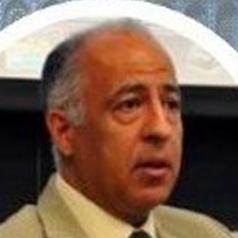
Fayez Hammad
Lecturer in Political Science and International Relations, USC Dornsife College of Letters, Arts and Sciences
Fayez Hammad teaches courses on Middle East politics, International relations of the Middle East and Arab-Israeli Conflict.
Less ![]()
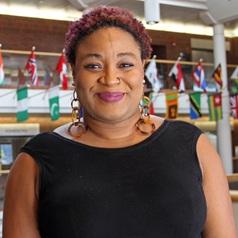
Fayola Helen Jacobs
Assistant Professor of urban planning, University of Minnesota
Fayola Helen Jacobs is an assistant professor of urban planning at the University of Minnesota. Her work sits at the intersection of Black geographies, Black feminisms, radical planning, and environmental justice. She uses these frameworks to understand global Black communities’ experiences of disasters and climate change and to create opportunities to imagine and build more just environmental futures.
Less ![]()
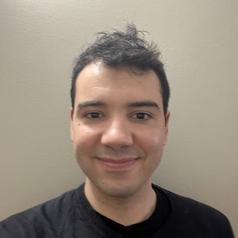
Federico Chaves Correa
Détenteur d’une licence en science politique de l’Universidad Nacional de Rosario. Doctorant en science politique à l’Université Laval. Sa recherche porte sur la gouvernance autoritaire et l’utilisation de la violence par les États autoritaires.
Less ![]()
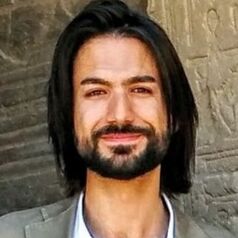
Federico Cugurullo
Assistant Professor in Smart and Sustainable Urbanism, Trinity College Dublin
Federico Cugurullo is Assistant Professor in Smart and Sustainable Urbanism at Trinity College Dublin. His research is positioned at the intersection of urban geography, political philosophy and experimental urbanism, and explores how ideas of sustainability are cultivated and implemented, with a focus on projects for smart and eco-cities.
He is currently researching how artificial intelligence (AI) is impacting on urban governance and planning, thereby influencing the sustainability of cities.
Federico has done extensive empirical research in the Middle East and Southeast Asia where he has investigated the sustainability performance of supposedly experimental cities such as Masdar City in Abu Dhabi and Hong Kong. His work has been used by the United Nations and the United Kingdom's Department for Environment, Food & Rural Affairs (DEFRA) to foresee future urban challenges and develop preventive policies.
Building upon his empirical research on AI, Federico has contributed to the development of the theory of autonomous urbanism. Other theoretical contributions include the concept of urban eco-modernisation, the notion of urban artificial intelligence, the development of urban equations and the critical theory of Frankenstein Urbanism.
Before joining Trinity College Dublin, Federico held positions at the University of Manchester, King's College London and the London School of Economics and Political Science.
Less ![]()
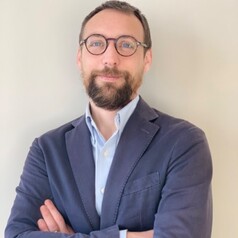
Federico Donelli
Assistant Professor of International Relations, University of Trieste
Federico Donelli, Ph.D. is a tenure-track Assistant Professor of International Relations in the Department of Political and Social Sciences at the University of Trieste, Italy. His research areas include international politics and security studies of the Middle East and Sub-Saharan Africa, focusing on the foreign policy of various regional and extra-regional actors. He is currently working on the militarization of the Red Sea and the increasing global competition in sub-Saharan Africa. He is the author of several articles that have appeared in International Affairs, Third World Quarterly, Small Wars & Insurgencies, and The International Spectator. He is also the author of Turkey in Africa. Turkey's Strategic Involvement in Sub-Saharan Africa, published by Bloomsbury in 2021.
Less ![]()
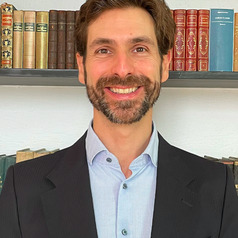
Federico Manfredi Firmian
Lecturer in Political Science, Sciences Po
I am a lecturer in political science at Sciences Po Paris, where I teach undergraduate and graduate courses on international affairs, including the seminars "Understanding Strategic Decision-Making: US Policy in the Middle East," "The War in Syria: US and European Policies," and "The Geopolitics of Energy." I am also an associate research fellow at the Istituto per gli Studi di Politica Internazionale (ISPI); a fellow at the Civil War Paths project of the Centre for the Comparative Study of Civil War at the University of Sheffield; a member of the Ambassador Council of the International Crisis Group; and a member of the editorial board of the journal Small Wars & Insurgencies. I have a PhD from the Sorbonne and a Master's from Harvard, and have published articles in Survival, Small Wars & Insurgencies, Middle East Policy, Asian Affairs, and World Policy Journal, as well as analyses and opinion pieces in the Modern War Institute at West Point, the LSE Middle East Centre, ISPI, and The Guardian. My research is grounded in extensive fieldwork, including in Afghanistan, Iran, Iraq, Syria, Kurdistan, Turkey, Lebanon, Jordan, Israel and the Palestinian Territories, Egypt, Libya, and Tunisia. In Cairo, I was the politics editor of Daily News Egypt, at the time one of the last independent newspapers in Egypt. During the course of my fieldwork, I also lived for extended periods in Beirut and Kabul.
Less ![]()
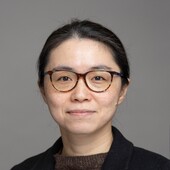
Fei Gao
Lecturer in Taxation, Discipline of Accounting, Governance & Regulation, The University of Sydney, University of Sydney
Less ![]()
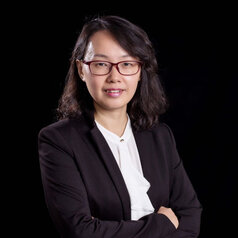
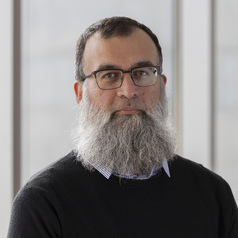
Feisal Subhan
Lecturer in Biomedical Science, University of Plymouth
I am a human physiologist and teach and conduct research at the University of Plymouth. My research interests are education and the lung.
I contribute to the teaching, curriculum developments, course management, assessments, quality assurance of the School of Biomedical and Healthcare Sciences. I also act as an expert resource in human physiology within the School's undergraduate programme, and participate and contribute to research activity within the School.
Less ![]()
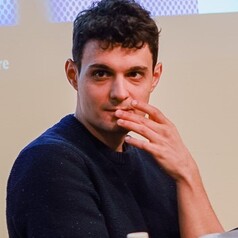
Félicien Faury
Postdoctorant, CESDIP, Université de Versailles Saint-Quentin-en-Yvelines (UVSQ) – Université Paris-Saclay
Félicien Faury est politiste et sociologue, docteur en science politique et postdoctorant au Cesdip (Centre de recherches Sociologiques sur le Droit et les Institutions Pénales). Ses travaux portent sur l'extrême droite française, les partis politiques, le vote, les processus de politisation.
Il a récemment publié :
- Des électeurs ordinaires. Enquête sur la normalisation de l'extrême droite, Seuil, 2024
- (avec Elisa Bellè), "Going Local, Going Mainstream? Ethnographic Study of Two French Cities Governed by the Rassemblement National", Government and Opposition, 2024:1-16.
- « Race et extrême droite. Réflexions sur les conditions raciales d’une recherche sur le Rassemblement national », Marronnages, vol. 2, n°1, 2023, p. 37-52
- (en codirection avec Safia Dahani, Estelle Delaine, Guillaume Letourneur) Sociologie politique du Rassemblement national. Enquêtes de terrain, Presses Universitaires du Septentrion, 2023.
- “Everyday gendered Islamophobia: exploring ordinary attitudes toward Muslim women in Southern France”, Gender, Place & Culture, 2023
- « Extrême droite partisane et rôles municipaux. Le travail de représentation d’élus municipaux du Front National », Pôle Sud, 2021/1 (54), p. 139-153
- (avec Guillaume Letourneur) « Un culte du chef ? Culture militaire et verticalité organisationnelle au Front national », Revue française de science politique, 2020/3 (70), p. 399-420
Less ![]()
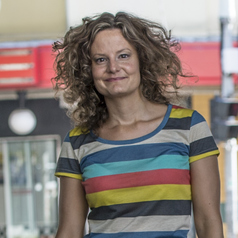
Felicity Castagna
Lecturer, Creative Writing, Western Sydney University
Felicity Castagna has published four novels for adults and young adults including her most recent book, Girls In Boys’ Cars which received The Victorian and Queensland Premier’s Literary Award for YA and is now being adapted for stage and screen. Her previous novel, No More Boats was a finalist in the 2018 Miles Franklin Literary Awards and is published internationally by Europa. Her young adult novel The Incredible Here and received The Prime Minister’s Award for Young Adult Literature as well as the IBBY Award and was a finalist in several other awards including the CBCA Book of the Year Award. She has worked with artists in many different fields to produce work for The Sydney Opera House, The Sydney Festival, The National Theatre of Parramatta, The Four Winds Festival and many other places as well as with The Finishing School Collective. Her creative non-fiction and critical responses to literature, art and home are published both here and internationally on platforms such as The Sydney Review of Books, Electric Literature, LitHub, The Griffith Review and ABC radio and television.
Castagna is a highly experienced teacher, speaker, writing mentor and teacher educator who has facilitated workshops everywhere from schools to community arts centres to correctional centres and has helped to establish, promote and run many writing and storytelling programs. She is currently a Lecturer in Creative Writing at The Writing and Society Research Centre, Western Sydney University.
Less ![]()
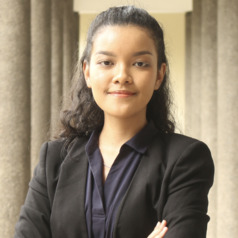
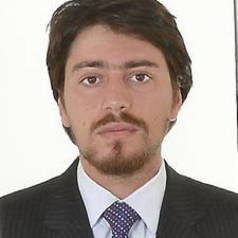
Felipe Antunes-de-Oliveira
Felipe Antunes de Oliveira is a Doctoral Researcher and an Associate Tutor in the Department of International Relations of the University of Sussex. He is also a professional diplomat of the Brazilian Ministry of External Relations.
His interest areas include Global Political Economy, Marxist Theories of International Relations, Dependency Theories and Uneven and Combined Development. He is specialised in Latin American contemporary political economy.
His current research compares neoliberalism and neodevelopmentalism in Brasil and Argentina.
Less ![]()
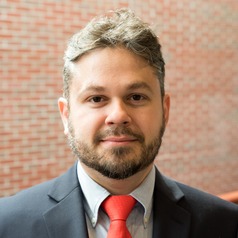
Felipe Bastos Gurgel Silva
Assistant Professor, Trulaske College of Business, University of Missouri-Columbia
Felipe B G Silva is an assistant professor at the University of Missouri. His research revolves around macroeconomics, political economy, and financial economics, and has been published in several academic outlets.
Less ![]()
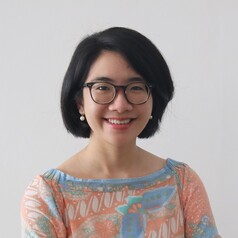
Felippa Amanta
PhD Candidate, Environmental Change Institute, University of Oxford
Felippa Amanta is a PhD student at the Environmental Change Institute, University of Oxford. Her research looks at digitalisation in households, consumption, and climate change. Previously, she worked as Head of Research at a Jakarta-based think tank, Center for Indonesian Policy Studies.
Less ![]()
- Market Data























